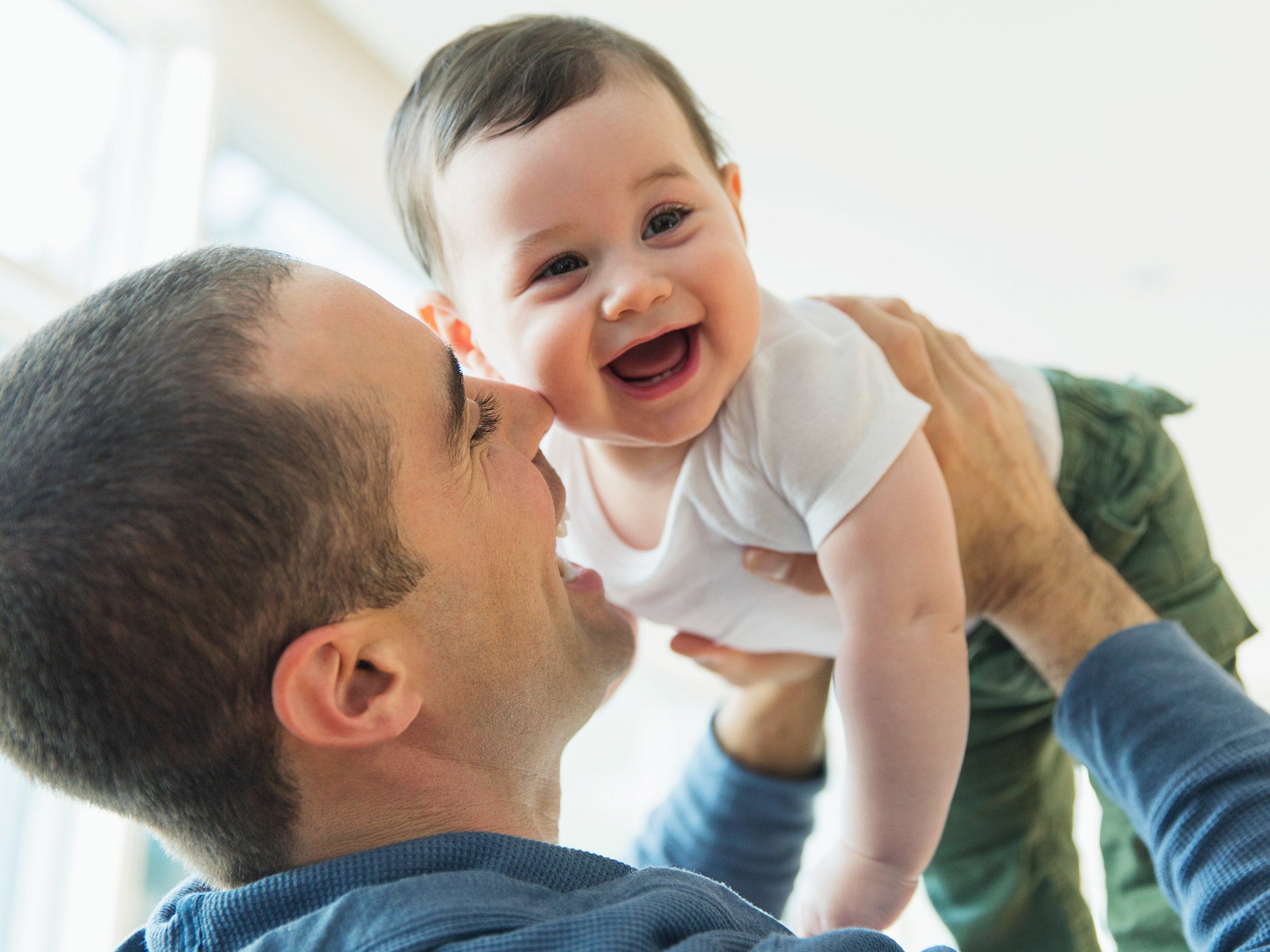Most first-time parents experience a decline in happiness after initial excitement, research says
Lack of sleep and financial worries can place a great strain on new parents

Your support helps us to tell the story
From reproductive rights to climate change to Big Tech, The Independent is on the ground when the story is developing. Whether it's investigating the financials of Elon Musk's pro-Trump PAC or producing our latest documentary, 'The A Word', which shines a light on the American women fighting for reproductive rights, we know how important it is to parse out the facts from the messaging.
At such a critical moment in US history, we need reporters on the ground. Your donation allows us to keep sending journalists to speak to both sides of the story.
The Independent is trusted by Americans across the entire political spectrum. And unlike many other quality news outlets, we choose not to lock Americans out of our reporting and analysis with paywalls. We believe quality journalism should be available to everyone, paid for by those who can afford it.
Your support makes all the difference.It is supposed to be one of the happiest times in a person’s life and for most people their first experience of parenting is exactly that.
However, according to research carried out in Germany, after the initial excitement, most first-time parents will experience a decline in life satisfaction, which can even make them less likely to have a second child.
It has long been known that stresses like lack of sleep, having less time to work on a relationship with a partner, and financial worries can place a great strain on new parents.
Now researchers at the Max Planck Institute for Demographic Research in Rostock say they have quantified the effect.
By analysing responses from mothers and fathers to a national survey, the German Socio-Economic Study, in which 20,000 people are asked to rate their general life satisfaction on a scale of one to 10 every year, they found that after an initial increase in happiness immediately before and after the birth of a first child, people experienced a decline in self-reported happiness equivalent to on average 1.4 units on the scale.
Professor Mikko Myrskylä, of the Max Planck Institute, said that the decline was greater than that observed in other studies in people who suffered unemployment, divorce or even a bereavement – although this was partly explained by the fact that, in early parenthood, people report high levels of happiness, so the decline is sharper.
“There are great expectations, happiness goes up and it may stay up immediately after birth. But for a large number of parents, there is a dramatic drop in happiness,” he said. “The majority experience some decline in happiness.”
Among parents whose happiness declined by three units, 58 out of 100 went on to have a second child within 10 years. Among those who reported no decline in happiness, 66 out of 100 had a second child in that time.
Professor Myrskylä said that the decision not to have more than one child had been a big contributor to falling birth rates in the developed world. In the UK the average number of children in a household has fallen from two in 1971 to 1.7 in 2013.
“There is more or less a taboo regarding the wellbeing of new parents,” he said. “The medical profession is starting to acknowledge this and postpartum depression is getting more and more attention but it’s still something that compared to many other events in life, is thought of as something that can be and should be only experienced positively.”
Vivien Waterfield, from the charity Home-Start UK, which provides support to thousands of new parents each year through a network of volunteers, said: “The birth of a child, especially the first, is a huge change in people’s lives and can mean new pressures for parents. In the first few weeks and months it is really important that parents who need extra support get it. But, it’s also important that parents know there is help out there and that it’s OK to ask for it.”
Case Study
Kirsty Hudson, 29, and her husband Carl had their first child, Samuel in February this year. She runs a blog about her experiences.
Everyone tells you how having a baby turns your world upside down, but I don’t think anything could prepare us for how difficult it was to adapt to. Samuel’s brilliant - very inquisitive, but he’s very full on and rejects sleeps in all its forms. For the first eight or nine weeks we were waking up every single hour with him. It’s incredibly hard to adjust to and we were absolutely exhausted.
My husband had to go back to work after a couple of weeks and I found it hard to do even small tasks like get the housework done – everything had to be planned around Samuel’s short bursts of sleep. In the beginning I found it very strange being home alone all the time with a new-born and leant on my NCT group for support.
One of the most difficult things is dealing with all the conflicting advice people give you. Everyone has their own opinion about what you’re doing right or wrong, from aiding sleep to buying a pram. I’ve learnt to take advice with a pinch of salt and trust my instincts as a mother.
There have been times when I’ve thought it’s enough to put me off having more children, but that feeling is gone now. My advice to new parents would be to accept the help that people offer you – even little things like making a new mother a cup of tea can be a lifeline.
Join our commenting forum
Join thought-provoking conversations, follow other Independent readers and see their replies
Comments